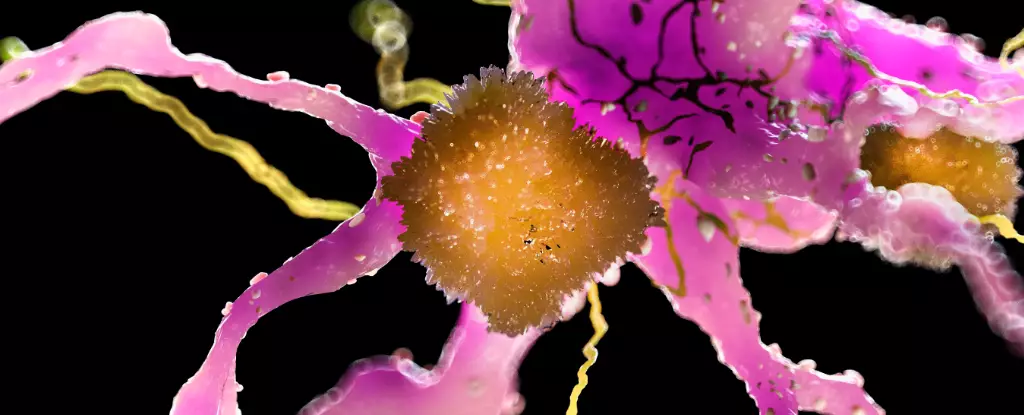Advancements in Alzheimer’s research offer a glimmer of hope for millions grappling with the potential threat of this devastating condition. Recent findings indicate that a novel therapeutic approach aimed at individuals already showing early signs of the disease could have profound implications. Randall J. Bateman, a neurologist at Washington University, heralds these developments as promising milestones toward a future where Alzheimer’s onset could be significantly delayed, especially for those genetically predisposed. His optimism signals a pivotal shift in our understanding and treatment of a disease that affects so many.
The Significance of Genetic Predispositions
The focus of this trial has been the Dominantly Inherited Alzheimer’s, which, though representing only 1% of Alzheimer’s cases, serves as a microcosm for understanding the broader disease experience. Those with this genetic predisposition face a near certainty of developing Alzheimer’s by their 50s, which raises the stakes for therapeutic interventions. The implications of the trial underscore the intricate relationship between genetics and the diseases that afflict humanity, pushing for an urgent re-examination of how we approach neurodegenerative disorders.
Unpacking the Treatment Paradigm Shift
At the heart of this research is the exploration of a combination therapy involving two antibodies, specifically designed to address amyloid protein buildup in the brain—one of Alzheimer’s key culprits. While the initial Phase 3 clinical trials didn’t demonstrate a significant symptomatic alleviation for participants with minor cognitive decline, the results were notable in terms of underlying pathology. The antibody gantenerumab showed potential in dramatically reducing amyloid protein markers. This finding is a pivotal moment, highlighting that while symptom relief is essential, addressing the disease’s roots could change the course of treatment.
A Cautious Optimism Amid Setbacks
Though the clinical trials suffered setbacks and did not meet predefined goals, the analysis uncovered a silver lining: participants who were administered gantenerumab had their risk of developing symptoms halved. This success story emerges in a landscape often shadowed by trial failures, reinforcing the necessity of perseverance in scientific research. Even more intriguingly, those at higher risk for cognitive decline may see a greater delay in their symptoms, especially as time unfolds and long-term data accumulates.
Weighing Risks and Rewards
Despite these advancements, it’s crucial to acknowledge the complexity of treatments involving antibodies like gantenerumab. While they may hold the potential to delay Alzheimer’s onset, risks accompany these therapies, such as brain microbleeds, which can occasionally lead to severe outcomes. This duality in treatment efficacy and associated risks highlights a vital conversation about the balance we must maintain in medical advancements—especially when the stakes are so high.
The Broader Implications of Neurodegenerative Research
The ripple effects of this research extend far beyond the confines of the clinical environment. With other next-generation anti-amyloid treatments gaining approval in the U.S. for symptomatic Alzheimer’s patients, it’s becoming increasingly plausible that the frontiers of neurodegeneration treatment could broaden to include preventive strategies for those at risk. This evolution not only reflects advancements in medical science but also prompts society to reconsider how we understand and approach chronic illness.
Looking Ahead: A New Era of Possibilities
As researchers continue down this path, the horizon appears more vibrant than ever. The notion that we could one day provide relief to individuals on the threshold of neurodegeneration evokes a sense of urgency and excitement. The journey of scientific inquiry fosters optimism, revealing that with each breakthrough, we draw closer to empowering individuals to reclaim their cognitive health. In this ongoing quest, emotional and psychological well-being plays an equally important role, signaling that the narrative surrounding Alzheimer’s disease is multifaceted—a blend of hope, caution, and the promise of a healthier tomorrow.


Leave a Reply